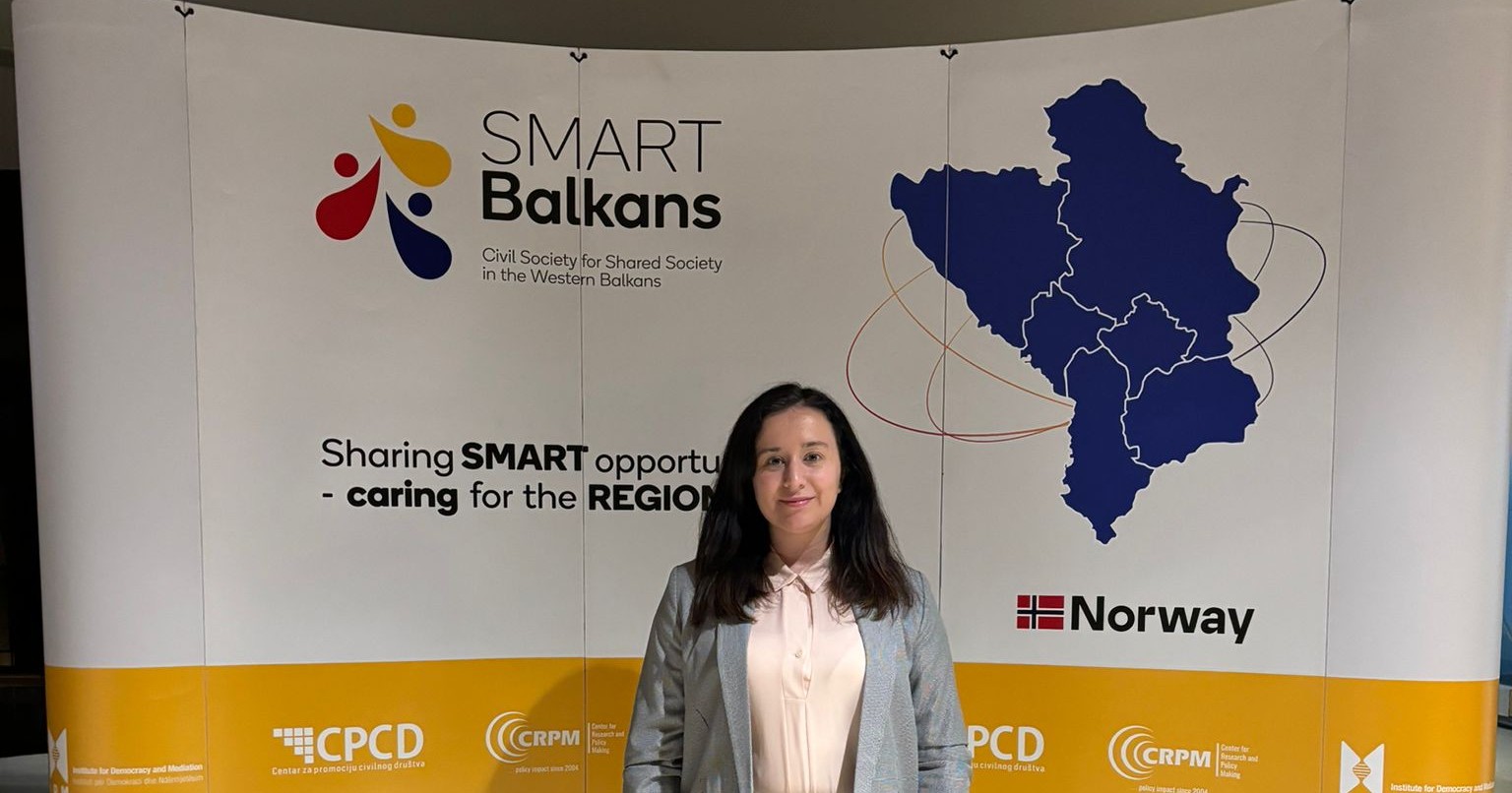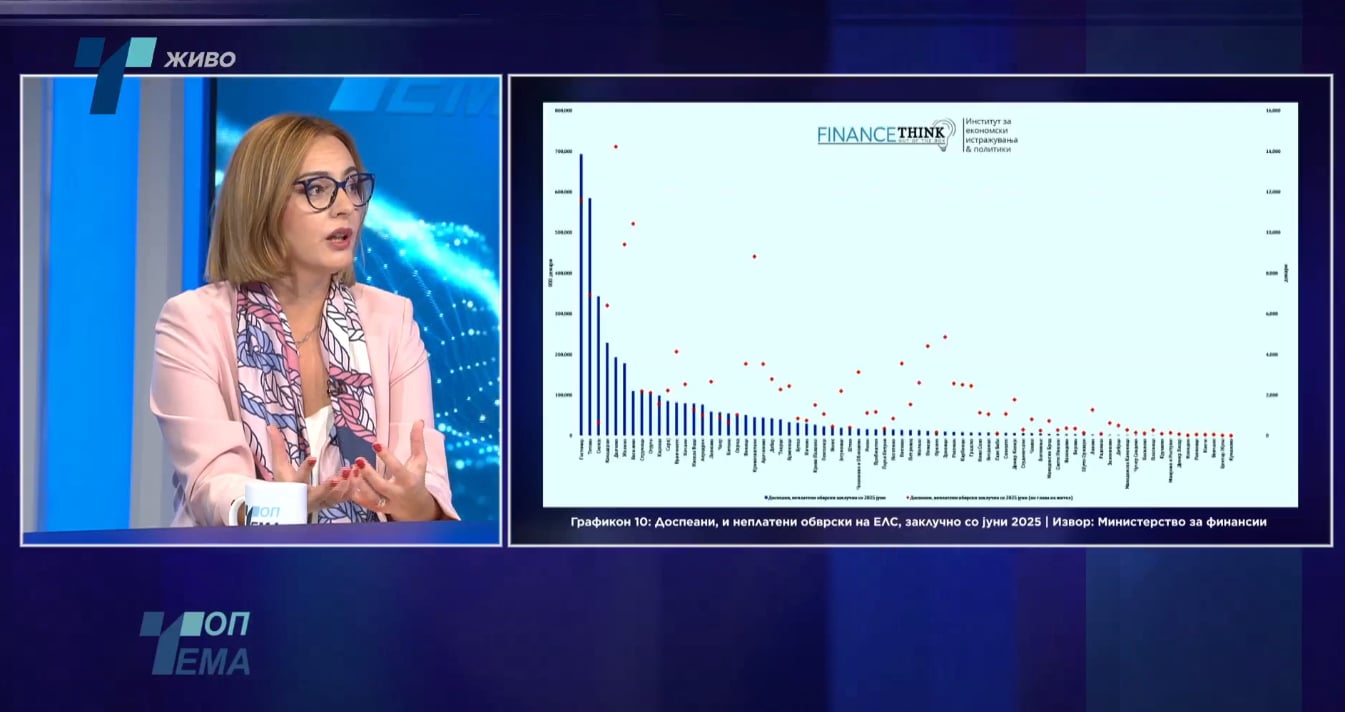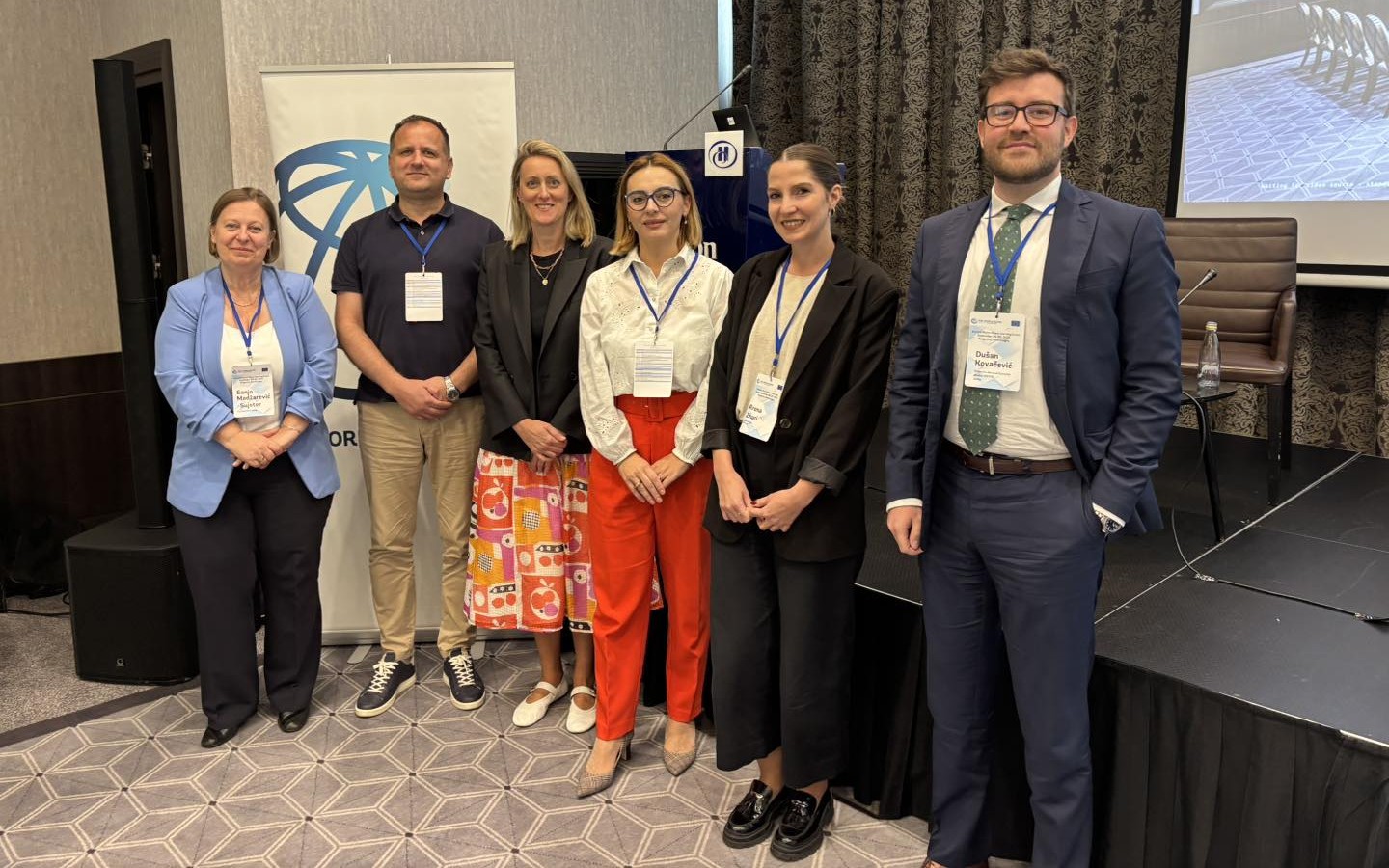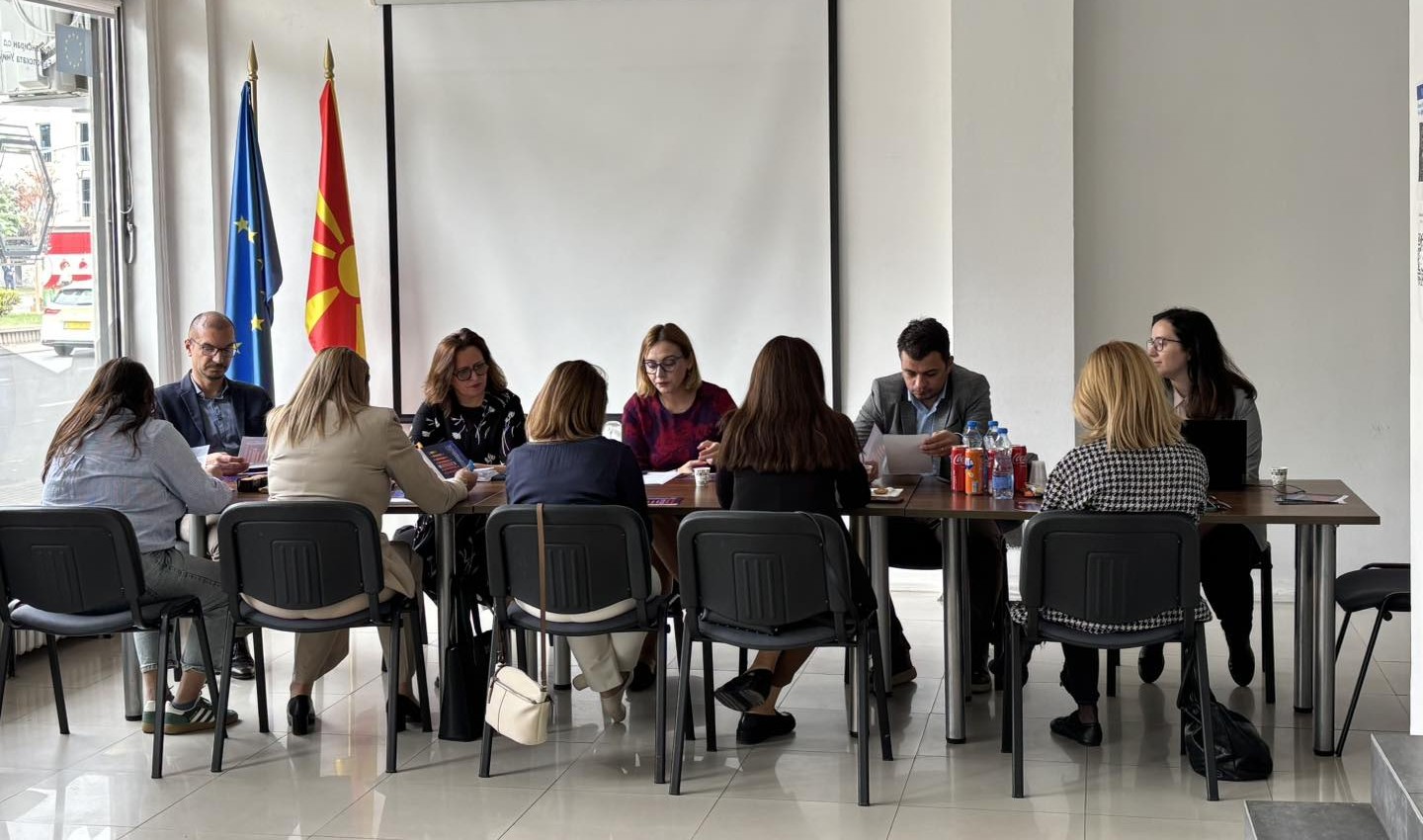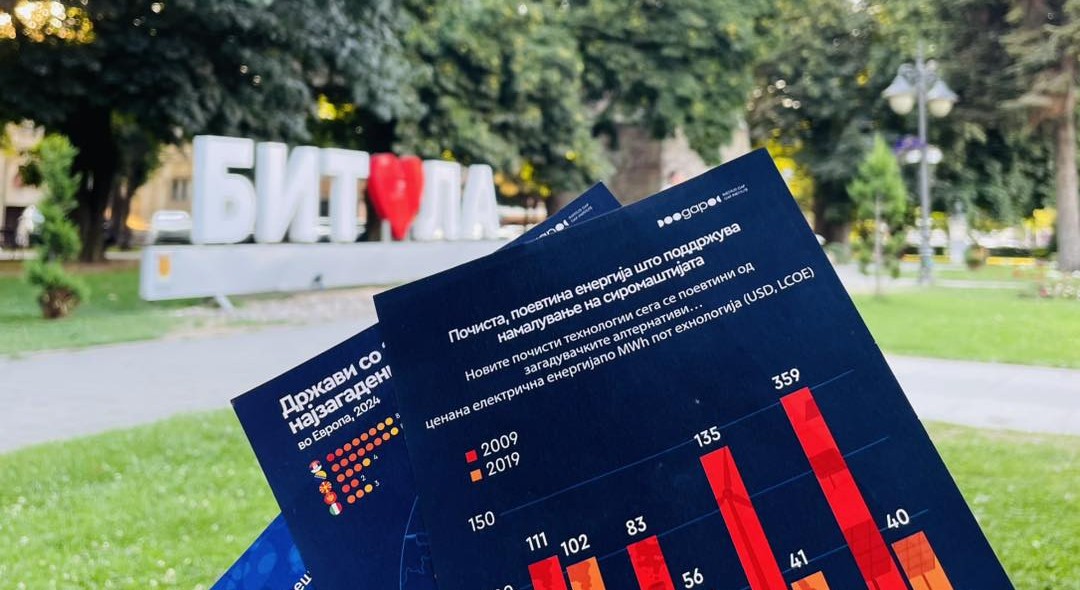🔛 On 12 and 13 November in Sarajevo, our economist Marija Basheska participated in the regional conference “Think SMART: Rethinking the Old-School Funding Approach,” dedicated to rethinking funding models and strengthening the role of the civil sector in the Western Balkans.
Her participation in the conference was an excellent opportunity to exchange practices, hear diverse perspectives, and strengthen regional cooperation.
#civilsociety #RegionalCooperation #WesternBalkans

